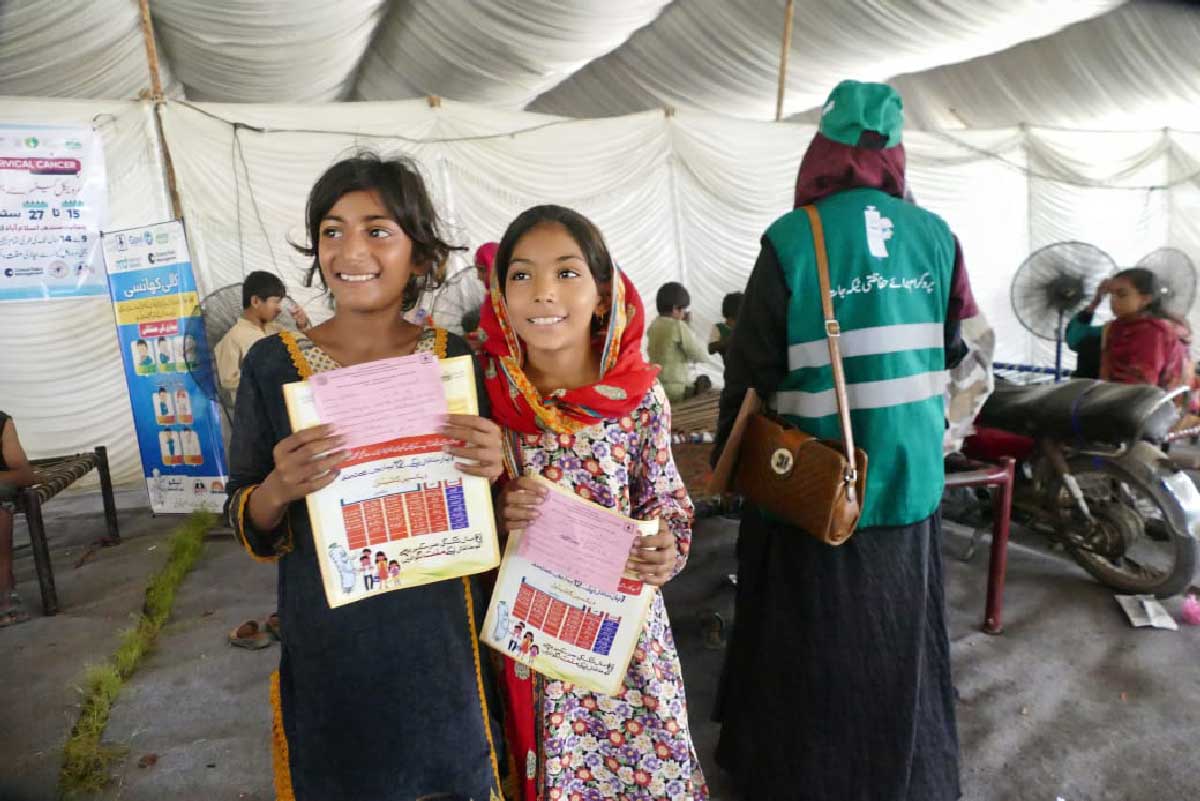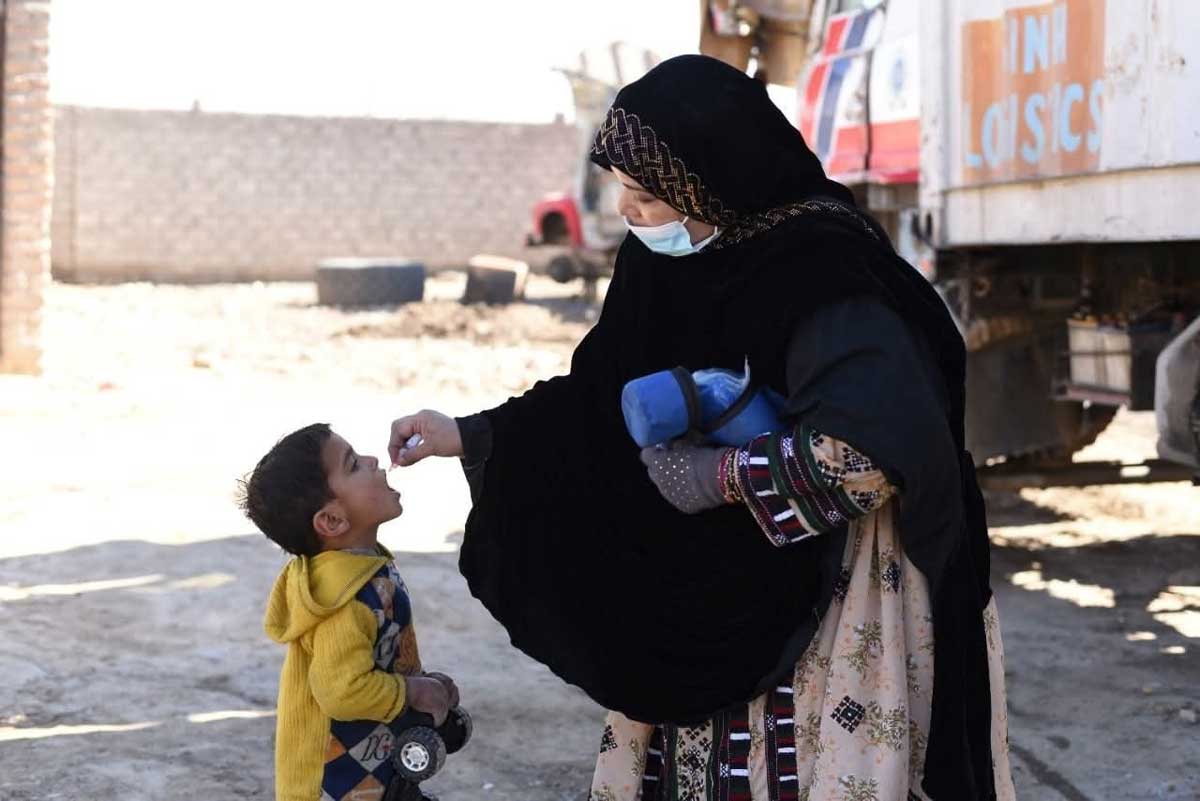Sit-down chats with dads are helping vaccinators in Pakistan reach more kids
In communities with high rates of resistance to vaccination, a Rwandan-inspired project brought health teams into living rooms, and into conversation with men. Vaccinators say they can see a change.
- 19 June 2025
- 6 min read
- by Adeel Saeed
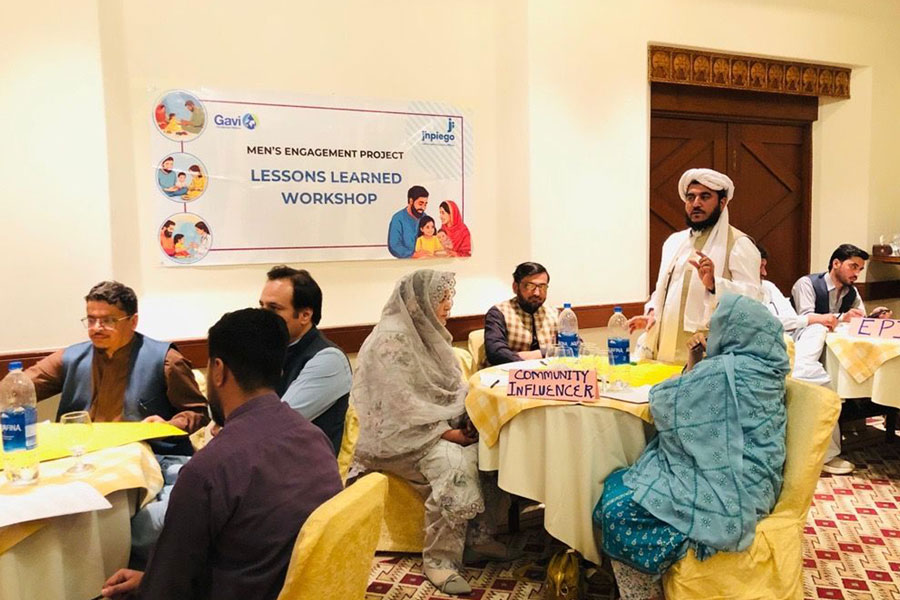
Despite being an educated and worldly businessman in Quetta, a district in Pakistan’s south-western Baluchistan province, Mujeeb ur-Rehman, a father of six from two marriages, remained unconvinced about the importance of vaccines for his children’s health.
Year after year, his children’s vaccination records stayed incomplete. Worried vaccinators from the local health team made several attempts to convince Rehman to allow the immunisation of his unprotected offspring. On each occasion, they were denied, even rebuffed.
But in March 2025, staff at the Expanded Programme on Immunisation (EPI) centre in Union Council 13-A, Satellite Town, were surprised to see Rehman walk in with his children, and declare he was there for their routine vaccinations. Delighted, the EPI staff accorded the family a cordial welcome, serving them traditional Qhewa (green tea) sweetened with jaggery.
Sipping the tea, Rehman opened up about the reasons for his sudden change in attitude, explaining he had received insightful counselling from a local civil society organisation (CSO), who were specifically reaching out to men in the district on the question of immunisation.
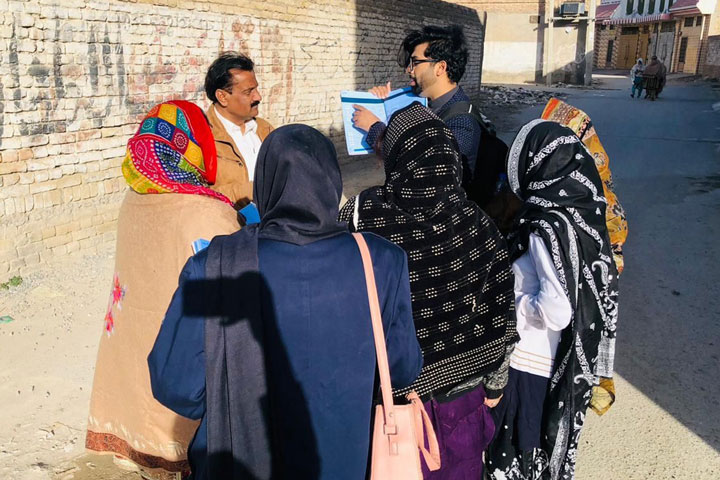
Overcoming resistance through conversation
The CSO Rehman referred to had been deputised by the international health nonprofit Jhipiego, which led the Gavi-supported project formally called “Engaging Male Caregivers in Improving Child Health & Immunisation with Gender Equality at Household Level” from November 2024.
For four and a half months, teams in both Quetta and Karachi districts conducted hours-long consultative sessions at community level and in homes, meeting with a total of 224 couples. The conversations delved into topics like gender roles, female engagement in decision-making, family planning and, of course, immunisation.
The new approach had the potential to save lives on a wider scale. Pakistan is one of only two countries, along with Afghanistan, where the wild poliovirus remains endemic, with the persistence of the paralysing disease being linked in large part to the refusal of thousands of parents to vaccinate their children.
The conversational format of the domestic intervention was also an opportunity to address other risks that arise at the junction of social dynamics and health, such as domestic violence. According to the United Nations Population Fund (UNFPA), 34% of married women in Pakistan suffer physical violence at the hands of their spouses.
Breaking barriers in conservative communities
“The task of engaging couples with focus on men in conversation over immunisation and proper caregiving was incredibly challenging, as the target community consisted mainly of Pashtun, Pashto-speaking communities with deeply conservative values” says Ameena Bibi, a social mobiliser.
The target families were “conspicuous for their resistance to vaccination and gender equality, often reacting harshly toward health workers” she added.
Bibi said initially family heads expressed reluctance to their outreach at homes, and did not allow female workers to meet with household residents.
However, following persistent visits and assurance by team members that the meetings were aimed at discussion about the better health of their children, doors were opened and permission granted for brief interactions.
Within a few weeks of continued interaction, health teams reported noticing a remarkable shift in attitude. In some cases, formerly resistant men even asked teams to include their relatives in the programme.
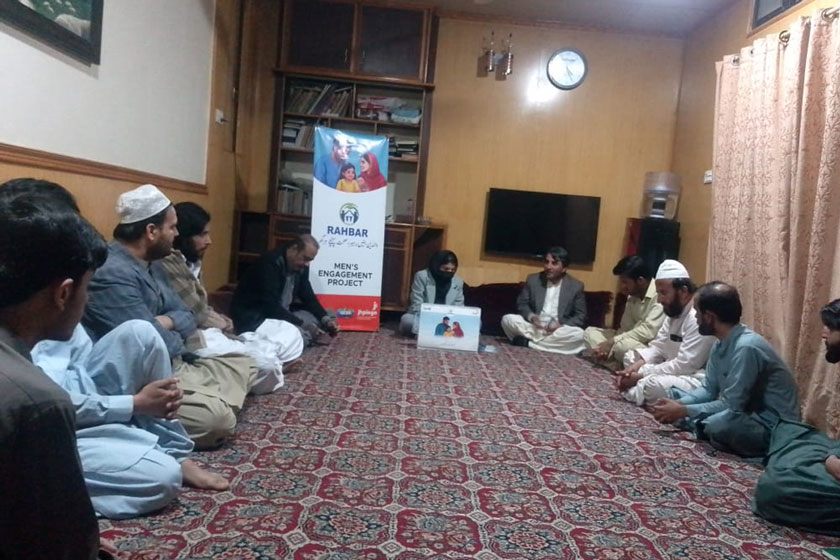
“They had seen the impact first-hand and wanted their family members to benefit from the lessons learned” Bibi said.
“For many of the social mobilisers and even the CSOs, this was a unique experience, as it was one of the first interventions we had implemented in communities to engage with male caregivers and couples to improve the EPI immunisation indicators” commented Irfan Alamgir Khan, Head of the Organisation for Community and Social Development (OCSD).
Being a local CSO in Quetta, OCSD collaborated with Jhipiego for implementation of the intervention. In Karachi Garden East district, meanwhile, the Sind Community Foundation (SCF) worked as Jhpiego’s on-the-ground partner organisation.
Local innovation, inspired by Rwanda
“This is the first intervention of its kind in Pakistan – of engaging men to enhance routine immunisation practices, and fostering gender equality at the family level” said Dr Fahad Abbasi, Project Lead and Technical Advisor on Immunisation at Jhpiego.
Social mobilisers from grassroots-level CSOs were trained on a gender transformative intervention, Abbasi explains.
Have you read?
The programme was introduced in Union Councils categorised as “super high-risk” by the polio programme, where reactions to vaccinators’ visits were often stand-out challenging. But as context-specific as the intervention was, it drew its inspiration from a project conducted half a world away, in Rwanda.
Rwanda’s “Bandebereho” – meaning “role model” in Kinyarwanda – which involved intervention, promoting positive fatherhood and gender equality, had already proven itself.
“We have adapted its principles to the local context and after months of collaboration with global and local experts, the Jhipiego team developed a curriculum for training by mobilisers titled “RAHBAR” (meaning ‘guide’) with tagline “Waldain Banein Rahbar – Sehat Pohnche Har Ghar” (Parents Become Guides – Health Reaches Every Home)” Abbasi told VaccinesWork.
“Through RAHBAR, we aimed to drive behavioural change at the community level, promoting shared caregiving roles, and ensuring that men and women equally participate in household decision-making, especially [about] health-seeking behaviours.
“Our mobilisers went door-to-door and delivered the message powerfully, holding hours-long sessions both at community level and with families” said Tauqeer Ahmad, Project Lead at OCSD.
“Local notables, influential people, prayers leaders, politicians were approached for reaching out to almost all the targeted families for sensitisation sessions” said Sohail Ahmad, Supervisor SCF.
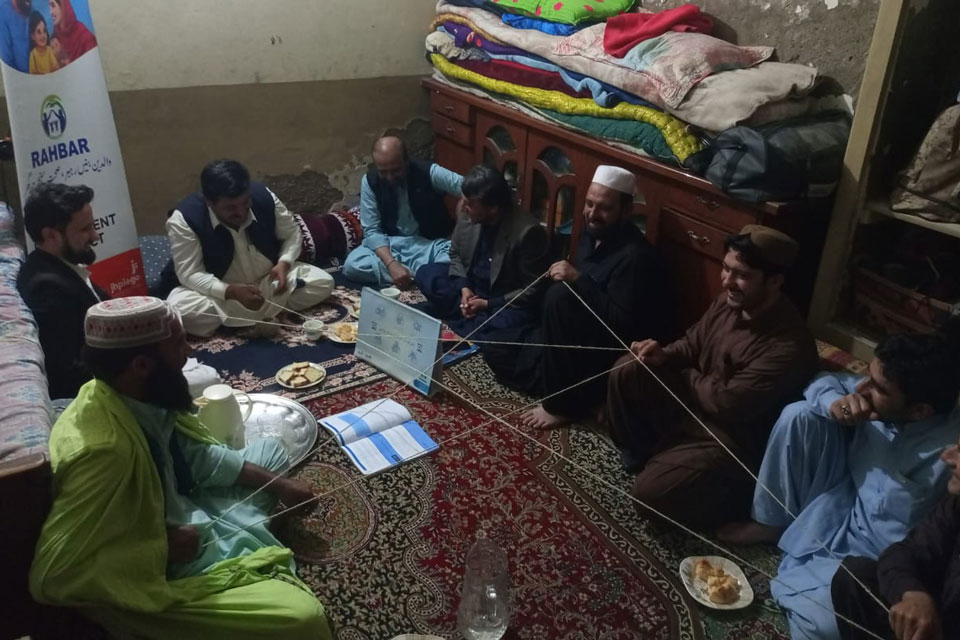
Green shoots of change
Sohail Ahmad said the impact of their efforts was legible in the fact that local health teams recorded an uptick in vaccination in the specific union council where the RAHBAR intervention had been rolled out.
As for a statistical summary, that’s still pending: Fahad Abbasi of Jhpiego said the endline assessment is awaited, as the intervention has been completed only recently. But he added that anecdotal evidence in the form of feedback from mobilisers has been overwhelmingly positive.
“The initiative brought a meaningful change at community level and is much needed for areas where conservative tendencies are high, not giving any consideration to females in decision-making, especially in family health” said Bibi.
She shared how several female beneficiaries expressed gratitude to the project team and organisers, reporting improved spousal behaviour, including cessation of physical abuse.
“After applying some lessons learnt in sensitisation sessions, I am observing improved relations between me and my spouse, and credit for this positive change goes to project intervention” observed Zahid Kakar, a caregiver who spoke to CSO teams as part of the RAHBAR project.
Kakar said he has observed positive changes also among other beneficiary caregivers, with men who previously did not regard healthcare as part of their role, seen standing in queues outside doctors’ clinics for check-ups of ailing children.
“We need more programmes like this to be implemented consistently in male-dominated communities to foster men’s growth as compassionate caregivers and responsible heads of families” suggested Zain ud-Din, a caregiver from Quetta.

